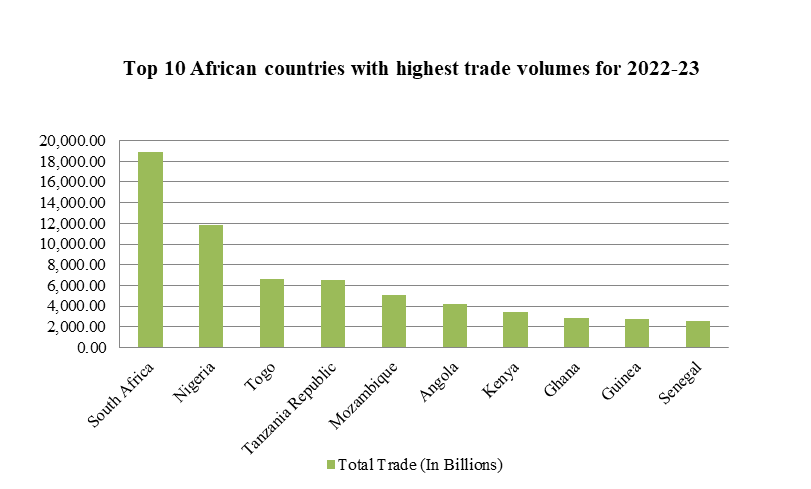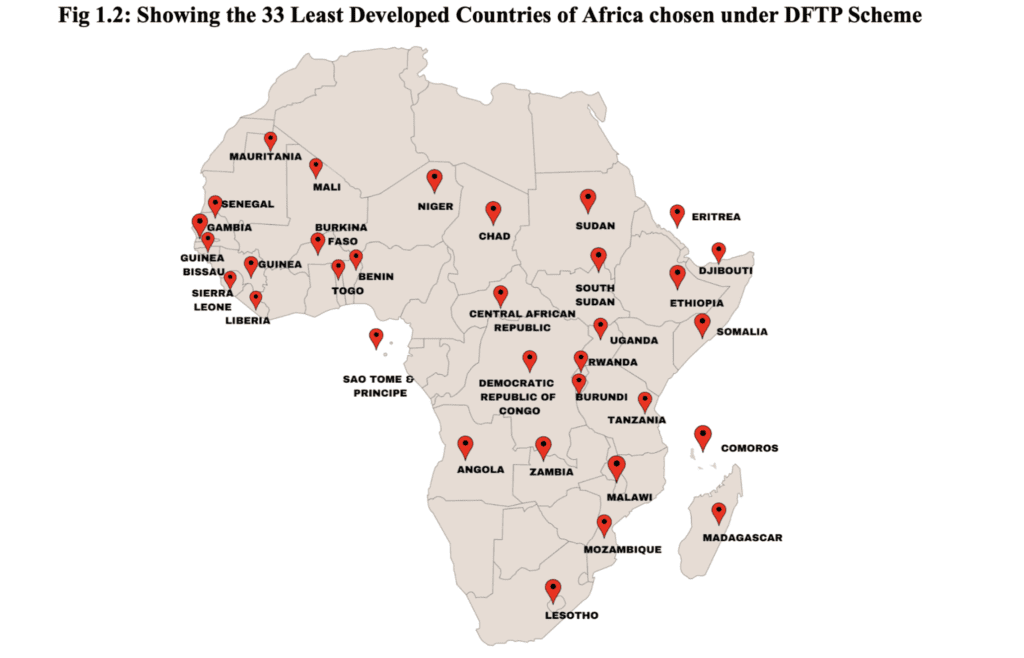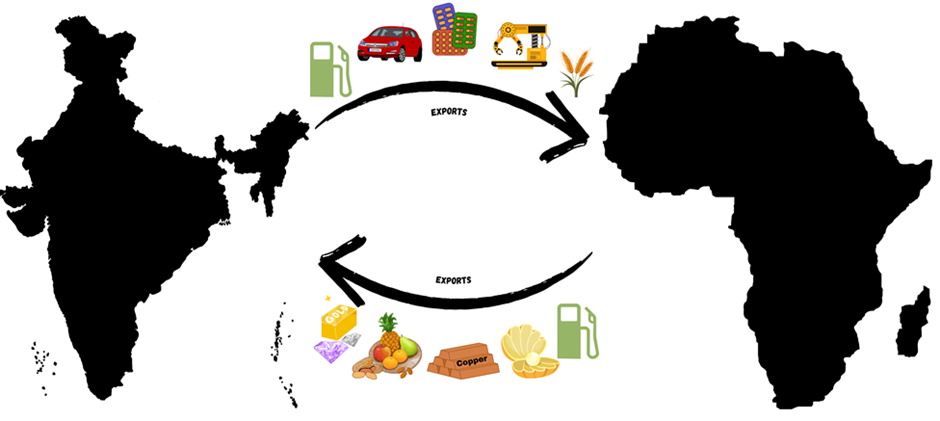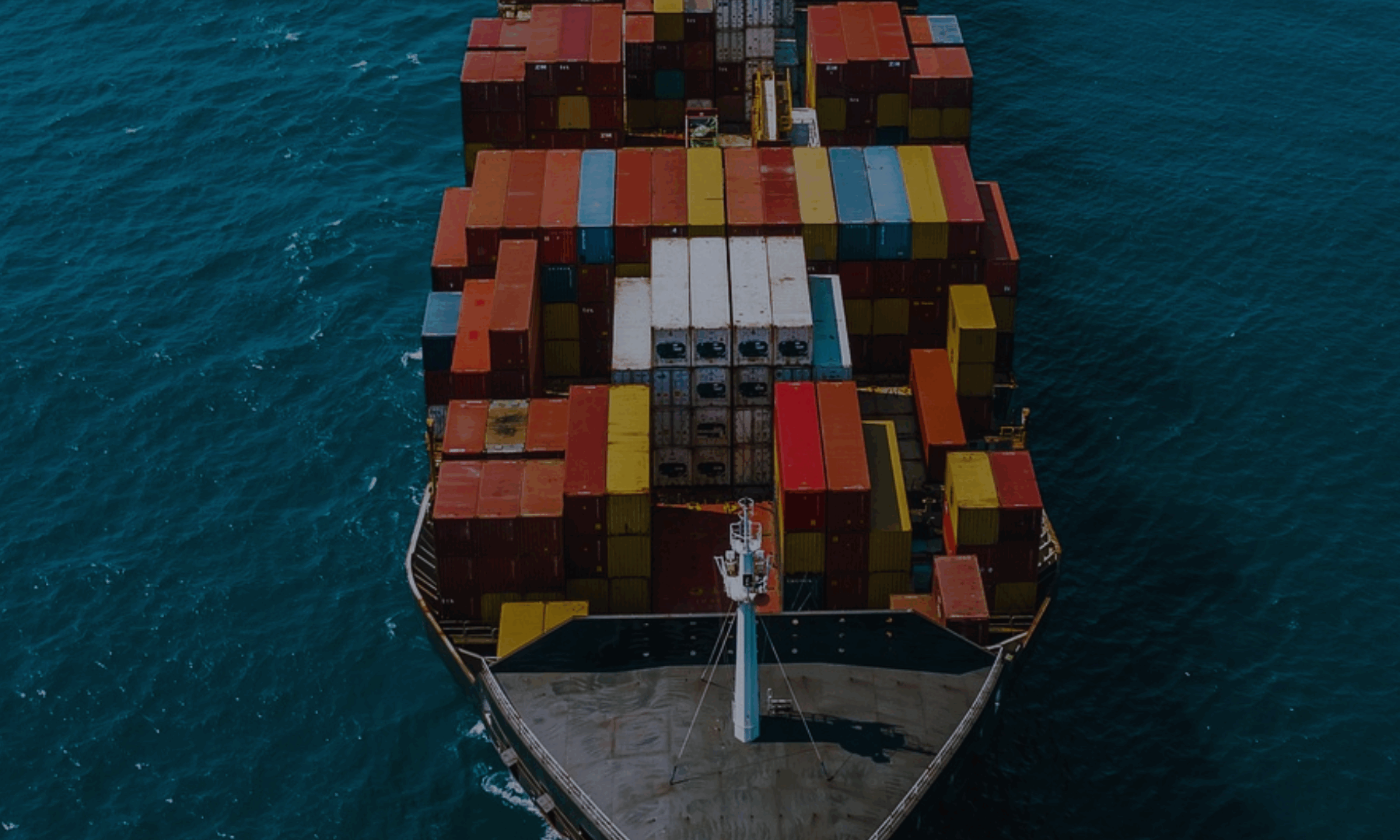Strategic Alliances: India and Africa’s path to economic resilience
In the intricate tapestry of global relations, India has an instrumental role in Africa’s economic growth process. United by an un-staggering commitment to the region’s economic progress, this India-Africa bilateral partnership transcends conventional boundaries, aiming for mutual prosperity.
Impact Of Covid
Tracing back the journey, the COVID-19 pandemic wreaked havoc on Sub-Saharan Africa in 2020, marking its worst economic performance ever, with a growth rate of -1.9%. Healthcare systems, education, and essential services suffered severe disruptions. Southern Africa experienced the most significant economic blow, with a 7.0% growth contraction, followed by Central Africa (-2.7%), West Africa (-1.5%), and North Africa (-1.1%). East Africa, less reliant on natural resources, managed a modest growth of 0.7%. Self-reliance and resilience emerged as the two most important lessons for Africa, post the pandemic blow. As a result, African countries are actively seeking to implement strategies that prioritise resilience while simultaneously achieving economic prosperity.
Among some of the major steps that Africa can take to ensure economic resilience and follow the path of self-reliance are external trade diversification, trade basket diversification, capacity building in the manufacturing sector and sustainability-oriented collaborations. These also happen to be the areas where both India and Africa can look into to strengthen their bilateral partnership and build a robust global-south economy.
- Trade Diversification
Fig 1.1: India’s Top 10 trading partner countries in Africa

ource: Ministry of Commerce
Out of the 53 countries comprising the African continent, only a few have emerged as significant trading partners of India. The majority of the remaining countries, many of which are classified as Least Developed Countries, would benefit from targeted initiatives that enhance and diversify their export offerings. One such initiative is Government of India’s Duty-Free Tariff Preference (DFTP) scheme offered to the LDCs.
The DFTP Scheme, offered by India during the 2008 India-Africa Forum Summit, is a substantial initiative aimed at bolstering economic ties and development with LDCs, particularly in Africa. Encompassing a wide variety of products (fruits, vegetables, nuts, spices, copper and bauxite ore, petroleum oils, LNG, chemicals, wood and wood articles, jute and cotton, non industrial diamonds and metal scrap), the scheme offers duty-free and preferential market entry to goods originating from 33 LDCs.
An UNCTAD report of 2023 cites that 33 LDCs in Africa as beneficiaries under the scheme.

The majority of products under DFTP are given Duty-Free Access to India market, whereby the tariffs are entirely waived off. This framework, coupled with phased tariff reductions and adherence to Rules of Origin, aims to promote value-added manufacturing in Africa, while also helping the region to attract investments and technology transfer, tus benefiting both India and participating African LDCs.
While India’s imports from Africa amounted to $39.279 billion in 2023, there remains substantial potential for certain products to significantly benefit the LDCs from which they originate. Among the exports of interest for these LDCs are cotton, cocoa, milk and dairy products, readymade garments, textiles, and more. Leveraging schemes like the Duty-Free Tariff Preference (DFTP) will also help the LDCs leverage the opportunities created in the African Continental Free Trade Area (AfCFTA).
This strategy of India to diversify trade through opening up the economic boundaries will greatly help the African nations with enhanced market access and preferential treatment, which can drive economic diversification, job creation, and poverty reduction in Africa.
- Forging New Paths In Manufacturing
It is imperative for African countries to promote the establishment of manufacturing industries to serve their domestic demand as well as participate in the global value chain. Toward this, India could play a key part in partnering Africa in reinforcing the manufacturing sector through investments and transfer of technology and knowledge. Till date, from the pharmaceutical industry to the IT sector, Indian firms have gone beyond conventional trade boundaries and have been replicating their global achievements within African markets. By expanding their operations across the continent, they’re not only accessing new markets but also aiding Africa’s manufacturing transformation. A few other sectors in which India has played a major part in Africa’s development are:
a. Agriculture:
India’s significant investments in agriculture, directed towards large-scale farming and agro-processing facilities, transcend mere commercial interests, emphasising knowledge sharing and contributing to Africa’s agricultural advancement. As a case in pint, ICRISAT, headquartered in Hyderabad, has launched targeted training programmes in select African economies and specialised fields. This organisation has established food processing incubators in Angola, Cameroon, Ghana, Mali, and Uganda, as well as food testing facilities in Nigeria, Gambia, the Republic of Congo, Zimbabwe, and Rwanda. Moreover, the organisation has collaborated with local firms to mentor six agro-business value chain incubators across various countries. These initiatives have yielded positive outcomes, benefiting over 800,000 farmers, creating 4,665 job opportunities, and facilitating the establishment of 294 start-ups throughout Africa.
b. Telecommunications:
Indian investments have made a significant impact on the telecommunications sector in Africa. Bharti Airtel, as of 2023, has established a strong presence in 14 African countries, serving a large customer base and showcasing extensive operations. This expansion also involves local manufacturing of telecom equipment, stimulating economic growth and employment opportunities.
c. Energy:
Furthermore, in the energy sector, Indian companies are actively involved in both renewable and traditional energy projects. These initiatives are not only aimed at fulfilling India’s energy requirements but also supporting Africa’s endeavours towards sustainable energy. Companies such as Adani Group and Reliance Industries are exploring various energy projects, contributing to Africa’s pursuit of sustainable and dependable energy sources.
d. Automotive Industry:
Indian automobile giants like Bajaj and Mahindra are increasingly investing in local assembly and manufacturing units across various African countries, recognising and catering to the specific requirements of African markets. Rather than focusing solely on exports, these companies are customising vehicles to suit diverse African environments and consumer preferences. These local manufacturing endeavours have far-reaching effects on Africa’s economy. They contribute significantly to job creation and skill enhancement, nurturing a capable local workforce crucial for the sustainable growth of the automotive industry.
e. Gold and Diamond Mining:
In Botswana, Indian companies are actively engaged in diamond mining, capitalising on the country’s position as one of the world’s leading diamond producers. In Tanzania, Indian investments are notably prominent in the gold mining sector, which contribute over 5.1% to the country’s GDP. Similarly, Indian mining activities in Zambia, particularly in copper and cobalt, follow a similar trend of bolstering local economic growth. The presence of Indian companies in these sectors facilitates technology transfer, skill enhancement, infrastructure development, and direct employment, enhances local industrial capacities and contributes to the fiscal revenues of the host countries.
3. Trade Basket Diversification and Technology Transfer
Fig 1.3: Showing the top 5 exported goods between India & Africa

Production capacity that is created in the manufacturing sector could be utilised by Africa to meet the immediate domestic demand, ensuring self-sufficiency as well as trade the surplus with the rest of the world. Following are few such sectors, the products of which can be pushed to the trade fronts, once they are indigenously manufactured in Africa’s industries.
a. Agriculture and Food Processing
In times when there is so much uncertainty around the world, prioritising food security will meet the demands of the population and also strengthen the economy by providing means of employment. The significant demand for food within Africa itself presents promising prospects for intra-African trade. It’s noteworthy that over 82% of Africa’s essential food imports originate from outside the continent. Given that production methods have remained largely unchanged for many decades, much of African agriculture still revolves around cultivating cash crops for export. Bridging this divide, India has the opportunity to expand trade in processed goods as well as the raw produce of the agriculture industry.
b. Defence Goods:
India has extended various forms of defence-related support to African nations, including training, provision of spare parts, and participation in military exercises. One such example is MKU Ltd, a defence manufacturing company based in Kanpur which proposed two areas of collaboration: technology transfer and direct purchase from India. With a robust research and development wing, the company has been showing the potential of providing tailored manufacturing to meet African requirements. Such collaboration in military hardware presents significant opportunities for trade and joint manufacturing, which is emerging as a promising avenue, offering tax and duty exemptions and driving local employment opportunities.
c. Space:
India’s expertise in the Space Sector lies in capacity building, indigenous space technology, and satellite launches. Collaborating with India can greatly benefit Africa through training, knowledge exchange, and joint research and development efforts. India’s advanced satellite technology supports communication, remote sensing, and weather forecasting in Africa, bolstering sectors like agriculture, disaster management, and telecommunications. With space agencies established in around 21 African countries and expected growth, India can share its expertise and knowledge in this sector, aiding African nations in developing their space capabilities. Specifically, space technology could be focused on countries like Malawi, which are highly susceptible to natural disasters, providing real-time data for weather monitoring and post-disaster interventions. Indian company Satsure has already extended its engagements in Africa with a plan to guarantee surveillance and access to remote farming communities.
d. Automotive:
The automotive industry in Africa, though currently limited in global influence and heavily reliant on imports of used cars, is poised for significant growth. Valued at US$ 30.44 billion in 2021 and projected to reach US$ 42.06 billion by 2027, this growth is driven by a rapidly expanding middle class and urbanisation. South Africa and Morocco dominate the continent’s exports, accounting for over 80%, yet Africa remains a major net importer of vehicles and parts. The African Continental Free Trade Area (AfCFTA) presents a transformative opportunity for regional and continental value-chain industrialization, which could be further bolstered by strategic partnerships with countries like India. India’s automobile industry, representing about 38% of its exports to the Southern African Customs Union (SACU), could greatly benefit from a Free Trade Agreement (FTA) with the region. Eliminating or reducing tariffs, currently as high as 20-25%, could enhance trade flows. India’s importation of essential raw materials from SACU, such as coal and iron ore, complements its industrial needs. With India and Africa aiming to double bilateral trade to $200 billion by 2030, the revival of India-SACU trade talks underscores a strategic move towards mutual economic growth and market diversification, fostering deeper integration and robust automotive ecosystems.
Initiatives like these spanning diverse sectors of goods and services can significantly aid both India and Africa in broadening their trade portfolio. This not only promotes self-sufficiency but also enhances their contribution to the global supply chain, maximizing benefits from international trade.
Shared Security For A Thriving India-Africa Trade Partnership:
The fourth initiative by India to boost partnership with Africa could be to address the challenges in food, energy and environmental sustainability. These particular areas present a unique opportunity for collaboration which can be achieved by creating new avenues for mutually beneficial trade.
a. Sustainability in food production:
Sustainability in producing food presents a shared challenge with both regions grappling with issues like malnutrition and climate change’s impact on harvests. India’s expertise in drought-resistant crops, irrigation techniques, and food processing complements Africa’s vast agricultural potential with underutilised land. Collaborative efforts could lead to increased food production, knowledge sharing, and trade in agricultural products and technologies. Additionally, India’s expertise in drought-resistant crops, irrigation techniques, and food processing can benefit Africa.
b. Energy sector sustainability:
Sustainability in the energy sector is a critical concern for both Africa and India, characterised by Africa’s growing energy demand amidst limited access to reliable and affordable power, and India’s strengths in solar power generation, efficient power grids, and renewable energy solutions. With over 600 million people in Africa lacking access to electricity and India targeting a significant rise in solar power generation, collaboration presents a vital opportunity. India can collaborate for setting up solar power plants, and share expertise in clean energy technologies, thereby contributing to Africa’s renewable energy market, estimated by the International Renewable Energy Agency (IRENA) to reach US$1.3 trillion by 2030. Currently, India’s solar exports to Africa are valued at US$234 million in 2021-22, indicating a promising avenue for mutual benefit and bolstering energy security for both regions.
c. Sustainable environment practices:
The vulnerability to climate change is stark, with projections indicating that it could push over 100 million Africans into poverty by 2030, while India faces heightened risks from extreme weather events like floods and droughts. By working together on climate-smart agriculture, sustainable resource management, and disaster resilience strategies, India and Africa can not only mitigate the impacts of climate change but also foster trade in related technologies and services. Investing in climate adaptation in Africa could yield US$7.1 trillion in net benefits by 2030, according to the Global Commission on Adaptation. Moreover, there is considerable trade potential in climate-resilient seeds, water-saving irrigation systems, and early warning technologies, signalling a pathway towards environmental security for both regions through shared efforts and innovative solutions.
The Journey Ahead
Both India and Africa are experiencing significant economic growth, with substantial increases in GDP. India currently holds the position as the world’s fifth-largest economy with a GDP of US$3.9 trillion, as of April 2024 following the United States, China, Japan, and Germany. As of 2023, Africa’s GDP was estimated at approximately $3.1 trillion.
Bilateral trade volumes between India and Africa have witnessed a remarkable surge, encompassing diverse sectors such as agriculture, pharmaceuticals, and information technology. The bilateral trade between India and Africa was measured to be US$ 98 billion in 2022-23 and is forecasted in The 18th India-Africa Conclave to reach an impressive US$ 200 million by 2030.
This partnership, if pursued with equal vigor, holds promise in tackling a variety of global challenges, including high inflation, the tightening of monetary policy, geopolitical tensions, and financial strains. However, realising trade prosperity depends on confronting these challenges and seizing the opportunities presented by this partnership. Therefore, alongside expanding trade with more African nations and exploring new markets, India could utilise its comparative advantages while also sharing technical expertise with African counterparts.
A secure and sustainable future for both India and Africa is attainable through collaborative efforts in areas of shared security. Through cooperation, these two regions could ensure food security for their populations, gain access to clean energy, and address the complexities of climate change. Implementing beneficial policies such as reducing trade barriers, a significant hindrance in exporting to African nations; enhancing trade facilitation; promoting technology exchange through educational initiatives; and investing in communication technologies like broadband could further bolster shared interests.

